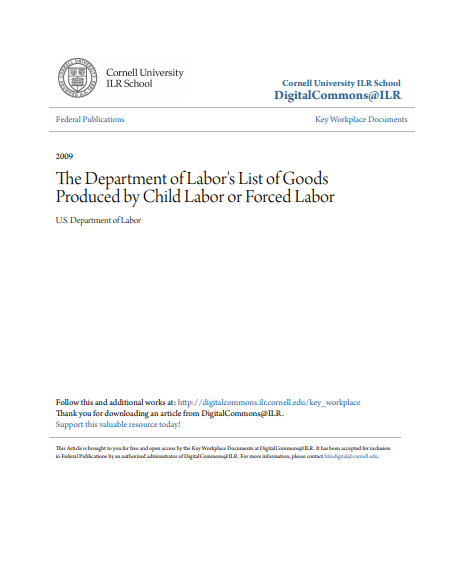Abstract
On September 10, 2009, the Department of Labor released its initial “list of goods from countries” (List), pursuant to Section 105(b)(2)(C) of the TVPRA of 2005. The List was released as part of a larger report detailing the methodology, scope, and limitations of the underlying research. Included in the List were 122 goods from 58 countries that ILAB has reason to believe are produced by forced labour, child labour or both, in violation of international standards. The countries on the List span every region of the world. The most common agricultural goods listed are cotton, sugarcane, tobacco, coffee, rice, and cocoa. In the manufacturing sector, bricks, garments, carpets, and footwear appear most frequently; and in mined or quarried goods, gold and coal. The report also includes listings of the sources used to make determinations about each good on the List. The primary purpose of the List is to raise public awareness about the incidence of child labour and forced labour in the production of goods in the countries listed, and, in turn, to promote efforts to eliminate such practices.

